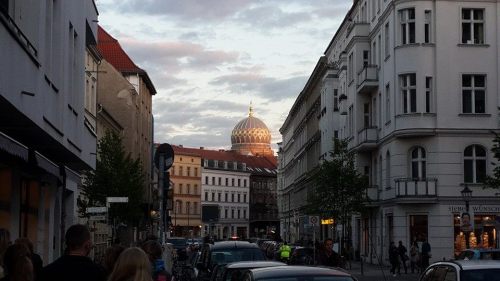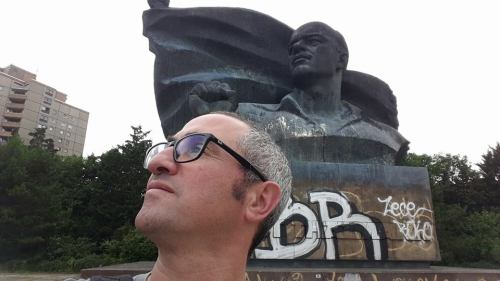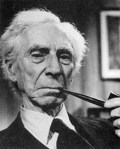The long six months since October 7 have been the most melancholy, unsettling of most of our lives (definitely of mine, and I have known a few). And not just because of the savagery inflicted on our brothers and sisters that horrid day. Nor the knowledge, every day since, that unimaginable horrors were being perpetrated on the hostages in Gaza. No one imagined that, in our lifetime, we would witness barbarism anywhere close to — never mind, as the October 7 atrocities arguably were, worse than — that meted out by the ubiquitous Nazi monsters we all ‘grew up with’. (They were still ‘alive’ for us ‘second generation’ decades after the liberation of Auschwitz.)
What has made the last six months so singularly awful, at times close to unbearable, has also been the reaction of so many in the West, who were seemingly just waiting for an October 7 in order to rejoice in Israeli — and, yes, Jewish — misery and suffering, and to then criticise, with sickening hypocrisy and double standards, the prosecution of an entirely legitimate war of self-defence, of survival even.
Since October 7, weeks before the incursion into Gaza, the great and the bad have been crawling out from under every fetid rock. And not just the usual Israel and Jew obsessed toerags. Roger Waters, Jeremy Corbyn and George Galloway have now been joined by ‘celebrity’ Israel-only bashers like Gary Lineker, Greta Thunberg, John Cusack, Mark Ruffalo, Susan Sarandon, and, most recently, Charlotte fucking Church. The social media activity of the ex-England footballer turned BBC presenter (and prize, virtue-signalling wanker), in particular, has been biased in the extreme, leaving most of us in little doubt as to what he is.
Even a friend (now former) from law school, who has always been at pains to paint himself as the humane, fair-minded socialist, defended Lineker’s call for a boycott of the Jewish state from international sport to me with: “Well, Russia was banned? Why not Israel?” A Dutch one, too, has, since October 7, like a Tourette’s case with no other vocabulary, been unable to stop posting about “The Zionists…”.
Most of us are simply bewildered by all of this. (More so, even, than by our shameless, self-serving joke of a Prime Minister — and, yes, I did once vote for him — still being in office.) I mean how can any right-thinking Westerner and so much of the media back a regime and populace (which voted that regime in) associated with a sadistic, murderous death cult — one so repugnant and anathema to its way of life, and that has sown nothing but death and destruction — over Israel?
The sad fact is that Jews are, and have always been, Enemy No. 1. They just hate us more.
“Never stand too close to the tracks on the Underground,” we were once warned at Hasmonean High School for Boys, “there could always be someone looking to push you on.”
That came as quite some surprise to a teenager whose interactions with non-Jews, though few, had always been on the genial side. Neither Mrs Hart nor Mrs Smith (employees in 70s and 80s England didn’t have first names) — the Isaacson household ‘daily’ and babysitter, respectively — showed any obvious signs of wanting to do us in. Nor did any of the consultant radiologists — my father’s colleagues at King’s College Hospital — or their wives, guests at the lively Saturday evening dinner parties in Edgeworth Crescent. My mother used to insist that one or two of the womenfolk were not really too keen on us Hebrews, but it was more a way of baiting my father — she was always more comfortable amongst her own — and I definitely don’t recall mention of any cunning proposals for an X-Ray Department Day on the Underground.
What I do recall, though, is exactly where I was seated as Rabbi Schmahl uttered those earth-shattering words. They impacted my early-teenage noggin with no less force than Mr Marks‘s various literary tomes did, on misbehaving occasion, the nape of my neck. It sounded like sheer Golders Green narishkeit at the time. But it no longer seems quite so nonsensical.
Our world was turned upside-down that first Saturday in October. Israel is now in a battle for its very existence. But our trauma stems equally from the realisation that there are hordes of Westerners who despise Jews so deeply that they prefer a future of Islamofacist savagery — including the roasting of babies in ovens whilst gang-raping, then mutilating and ripping apart their mothers — to one merely including a Jewish state.
The ridiculous irony of all of this is that none of the vile individuals so vociferous in their hatred of all things Israel would last a single day under Muslim rule. Just take away their pub — Lineker wouldn’t even be able to wash down his Walkers with a half a shandy — and they’d immediately start wishing that they hadn’t been born such farshtinkener antisemites. You can’t live a free life as a non-Muslim — not to mention as a female, LGBTQ+, or even lover of animals (the IDF has rescued thousands over the last six months) — in an Islamic state, never mind one governed by barbarians like Hamas.
A fact that I have always thought to be self-evident — one of the things that I just know (as a Philosophy graduate, there aren’t many) — is that folk who harbour a hatred towards Jews share it with one for the rest of mankind. Name a single positive role model in the pantheon of history’s ‘great’ antisemites. No, I thought not.
If, in planning October 7, Hamas considered that Israel would merely surrender because defending itself would entail killing non-combatants, it miscalculated badly. However tragic the civilian losses in Gaza, Hamas, in perpetrating the atrocities of October 7, bears moral responsibility for them. If the Palestinians don’t care about their own — Hamas could put an end to the suffering in Gaza by immediately releasing the hostages — why should Israel be expected to? Hamas picked this fight, rejoiced — with ‘ordinary’ Gazans (as evidenced by video footage from October 7) — in its savagery, and is entirely responsible for its foreseeable consequences.
I would very much like to end this post on some kind of positive note. But, aside from the heroism of our soldiers (fighting in unimaginable conditions) and the brave voices of individuals like Douglas Murray, Lee Kern (who tells it exactly as it is on X), David Collier and Colonel Richard Kemp, I can’t find too many to sound. I am not sure what the future holds. What most of us are sure about, however, is that we have no choice but to crush Hamas. We will certainly not ‘surrender’ like so many in the UK already seem to have done.
Back in October, Phil, a friend from Halifax, wrote to me as follows:
“Good luck with the struggle mate, it is a stand you HAVE to make. Right now is probably the first time in my life I wish I was Jewish and under 40. They fucking couldn’t keep me away! This place is fucked mate, don’t expect much public support from here. Trouble is the ‘noisy’ folk here all on the left. Anyone taking even a moderately right of centre view faces being branded fascist. The Police, Government, BBC etc are so petrified of any swing to the right that nothing is ever discussed openly with both sides of the argument. It’s a fucking disgrace mate. There is nothing to feel proud to be British about. I hope you guys and the Americans do everything it takes. Fuck em.”
Israel is fighting for the Western values and Judeo-Christian tradition that we take for granted, but cherish most dear. It is a fight of Good vs. Evil. Pick your side. Pick the wrong one, though, and you will be judged by history.
And ask yourself this: What will the world look like if Israel doesn’t succeed?
Am Yisrael Chai. 🇮🇱
















 But it was that trip to the Caribbean and time spent with said Barmy Army (right) – the only semblance to an “army” being that, after a few days, you can’t wait to get out – which reminded me (not that I had ever truly forgotten) why I am not (really) an Englishman: I simply do not enjoy consuming copious amounts of alcohol for hours on end while standing at some nondescript bar stinking of urine (the bar that is . . . not me), making less sense by the pint (me this time). (In fact, thoughts and feelings fresh, I wrote the first draft of this post during the first leg – from Barbados to New York – of my return journey to Tel Aviv, on the 3rd of March.)
But it was that trip to the Caribbean and time spent with said Barmy Army (right) – the only semblance to an “army” being that, after a few days, you can’t wait to get out – which reminded me (not that I had ever truly forgotten) why I am not (really) an Englishman: I simply do not enjoy consuming copious amounts of alcohol for hours on end while standing at some nondescript bar stinking of urine (the bar that is . . . not me), making less sense by the pint (me this time). (In fact, thoughts and feelings fresh, I wrote the first draft of this post during the first leg – from Barbados to New York – of my return journey to Tel Aviv, on the 3rd of March.) From time to time, I visit the British military cemeteries in Jerusalem (left) and Beersheba, where thousands upon thousands of World War One dead rest. It is a deeply moving experience, knowing that these young men – from towns and villages I have only heard of through my former (sad) interest in local league cricket – fell in a far-off land, fighting a war which probably meant even less to them than the conflicts in Iraq and Afghanistan do to today’s British servicemen. And I always wonder whether anyone still mentions – never mind visits – them . . .
From time to time, I visit the British military cemeteries in Jerusalem (left) and Beersheba, where thousands upon thousands of World War One dead rest. It is a deeply moving experience, knowing that these young men – from towns and villages I have only heard of through my former (sad) interest in local league cricket – fell in a far-off land, fighting a war which probably meant even less to them than the conflicts in Iraq and Afghanistan do to today’s British servicemen. And I always wonder whether anyone still mentions – never mind visits – them . . . At a time when it was not common, or widely acceptable, for people to question the existence of the Deity, British philosopher Bertrand Russell (right) felt the urge to write his essay
At a time when it was not common, or widely acceptable, for people to question the existence of the Deity, British philosopher Bertrand Russell (right) felt the urge to write his essay 

 To make matters worse, the general level of teaching of Jewish Studies was appalling, with little or no thought given to what might capture the interest (and there are plenty of aspects of Judaism which can) of the less learned or diligent boys (myself included). All I can recall from seven years of Gemorah (Talmud) study are scenarios of one man’s ox goring another’s in a public or private thoroughfare, which had little relevance in 1980s Britain (even in the shtetl of Golders Green). Yes, I know, Talmud study teaches one logic, and how to think . . . but a half-decent educator should have had a ‘plan B’ to offer our recalcitrant Yeshiva Stream ‘B group’. When Rabbi Abrahams, remarkably progressively for Hasmonean, decided to devote one school year to an explanation of the Siddur (daily prayer book) – relevance! shock horror!! – there was a tangible spirit of revolution in the air (though it was one which, sadly, never took wider hold).
To make matters worse, the general level of teaching of Jewish Studies was appalling, with little or no thought given to what might capture the interest (and there are plenty of aspects of Judaism which can) of the less learned or diligent boys (myself included). All I can recall from seven years of Gemorah (Talmud) study are scenarios of one man’s ox goring another’s in a public or private thoroughfare, which had little relevance in 1980s Britain (even in the shtetl of Golders Green). Yes, I know, Talmud study teaches one logic, and how to think . . . but a half-decent educator should have had a ‘plan B’ to offer our recalcitrant Yeshiva Stream ‘B group’. When Rabbi Abrahams, remarkably progressively for Hasmonean, decided to devote one school year to an explanation of the Siddur (daily prayer book) – relevance! shock horror!! – there was a tangible spirit of revolution in the air (though it was one which, sadly, never took wider hold).


